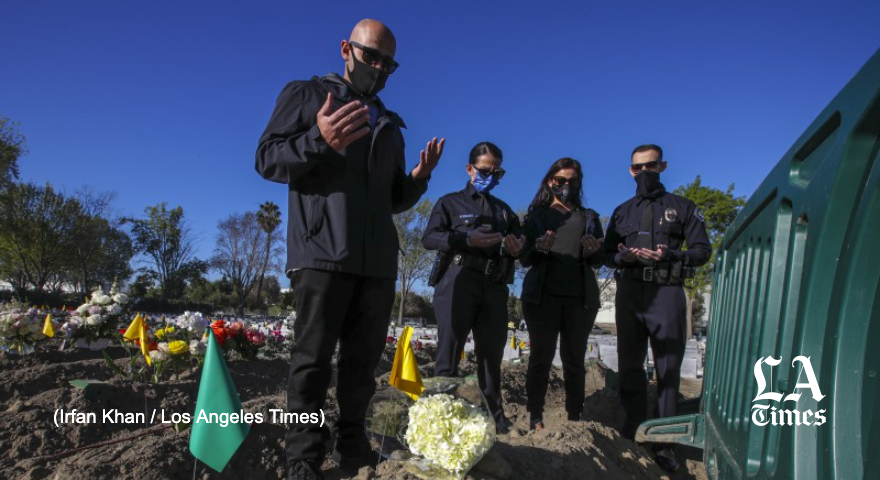
For some, it was the desire to make a buck. For others, it was fear of missing out, anger at elites or idle curiosity.
Times reporters spoke with seven GameStop investors: latimes.com/business/story…
Times reporters spoke with seven GameStop investors: latimes.com/business/story…
For Ryan Zamo, an entrepreneur, buying GameStop was something to do with money he didn’t need in the first place. He uses a Robinhood account for what he calls his YOLO bets.
“We don’t have a mission to burn down Wall Street,” he said. latimes.com/business/story…
“We don’t have a mission to burn down Wall Street,” he said. latimes.com/business/story…
Community organizer John Motter feels differently.
“My goal isn’t to get rich on this, my goal is to bankrupt these billionaires.” latimes.com/business/story…
“My goal isn’t to get rich on this, my goal is to bankrupt these billionaires.” latimes.com/business/story…
For Christopher Wehkamp, a voice actor, the chance to put the hurt on Wall Street titans was part of the appeal.
“There was definitely a motive to give a lot of the billionaires something that is coming to them — I loved that idea.” latimes.com/business/story…
“There was definitely a motive to give a lot of the billionaires something that is coming to them — I loved that idea.” latimes.com/business/story…
Another man sold some of his GameStop holdings last week, making “enough to not have to work any more this year.” latimes.com/business/story…
Issac Mooring II, a college football coach, managed to snap up some shares yesterday.
“I’m a family man, I have a personal interest to make as much as I can to build my family’s future.” latimes.com/business/story…
“I’m a family man, I have a personal interest to make as much as I can to build my family’s future.” latimes.com/business/story…
For Julie Fredrickson, a start-up founder and investor, GameStop symbolizes the way technology is accelerating the pace of change in unpredictable ways.
She and her husband bought one share on Wednesday, when it cost $327, “just for the fun.” latimes.com/business/story…
She and her husband bought one share on Wednesday, when it cost $327, “just for the fun.” latimes.com/business/story…
• • •
Missing some Tweet in this thread? You can try to
force a refresh








